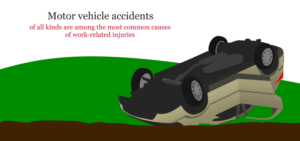
It is a mistake to overlook the availability of workers’ compensation benefits if you have been injured in a car or truck accident that was connected to your job duties. Motor vehicle accidents of all kinds are among the most common causes of work-related injuries.
Even if driving is not among your primary job duties, you may obtain workers’ compensation benefits if you have been hurt and lost work time because of injuries suffered in a work-related motor vehicle accident.
A research brief published by the National Council on Compensation Insurance (NCCI) called traffic accidents a leading cause of high-severity workers’ compensation injuries. The report said work related injuries linked to vehicle accidents are pervasive.
The NCCI brief also says that, on average, injuries in motor vehicle accidents are likely to be more severe and thus more costly than other job-related accidents, such as fall, burns, or being struck by objects.
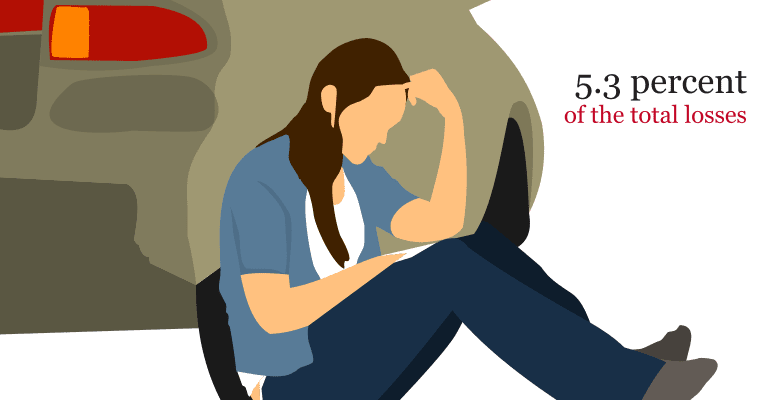
The Liberty Mutual Research Institute for Safety’s annual Workplace Safety Index ranks roadway incidents among its top 10 causes of serious, nonfatal workplace injuries every year. The 2014 edition of the index, which ranks events that caused an employee to miss six or more days of work, says motor vehicle accidents represented 5.3 percent of the total losses due to workplace injuries in 2012, a cost of $3.18 billion.
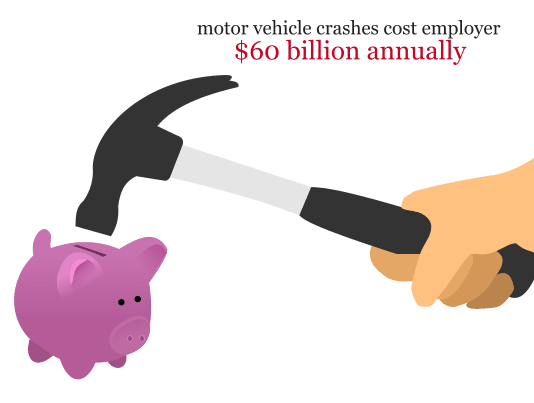
A publication for employers by the Occupational Safety and Health Administration (OSHA) and the National Highway Traffic Safety Administration (NHTSA) about reducing work-related car crashes says motor vehicle crashes cost employers $60 billion annually in medical care, legal expenses, property damage, and lost productivity.
Are You Owed Workers’ Compensation Benefits?
There are several factors to keep in mind when considering a workers’ comp claim for injuries suffered in a car accident.
To be eligible for workers’ compensation after a motor vehicle accident, the accident must have been connected to the performance of your job duties, and you must have been on the job at the time of the accident. Commuting – driving to and from work – is not a job duty and you are not on the job while you commute. A crash during your commute would not be covered by workers’ compensation.
However, travel during the workday that is connected to the job would be covered by workers’ compensation. This includes travel to meetings or on a business trip, as well as travel required by the nature of the job, such as delivery work or an outside sales job.
It is also important to remember that workers’ compensation is a no-fault insurance program. You are eligible for benefits even if a work-related car accident was your fault, unless you were acting with flagrant disregard for safety, such as driving drunk or speeding at an excessively high rate.
Even if you were charged with a violation of traffic laws in a work-related car accident, you should seek workers’ compensation for any injury that causes you to lose work. In such a case, we would also suggest that you consult a workers’ comp lawyer immediately in case your employer or their insurer disputes your claim on the basis of your driving behavior.
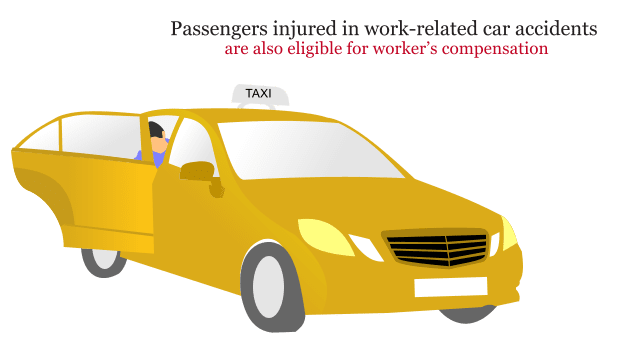
But you don’t have to have been the driver in an accident to be eligible for workers’ compensation. Passengers injured in work-related car accidents are also eligible for workers’ compensation, such as if you were riding with a co-worker to a meeting or another required work function. In fact, if you were the passenger of a co-worker who caused an accident, you may be able to seek additional compensation through your co-worker’s auto insurance in a third-party claim.
Third-party claims are useful for obtaining money above and beyond workers’ comp, such as money for your pain and suffering, which is not a workers’ comp benefit. These personal injury claims must show negligence on the part of the defendant (speeding, distracted driving, failure to yield, etc.) and a clear connection between their negligence, the accident and your injury.
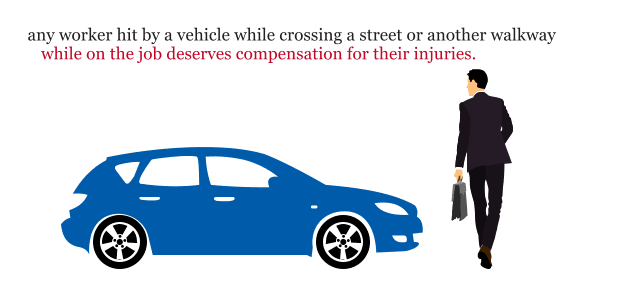
You don’t even have to have been in the vehicle to be eligible for workers’ comp if you were hurt in a motor vehicle accident. In the construction industry, for example, backover accidents – when a backing vehicle strikes a worker who is standing, walking or kneeling behind the vehicle – are a major safety concern. But any worker hit by a vehicle while crossing a parking lot, a street or another walkway, or standing still while on the job deserves compensation for their injuries.
It would be impossible to list all of the potential variables in a workplace motor vehicle accident and discuss how they may affect workers’ compensation claim eligibility. We believe that anytime a worker is hurt while on the job in North Carolina they should seek workers’ comp benefits for any medical expenses or lost income they incur.
If you have questions or concerns about your eligibility for workers’ compensation benefits in North Carolina, we would be happy to discuss your potential claim with you, free of charge.





Leave a comment